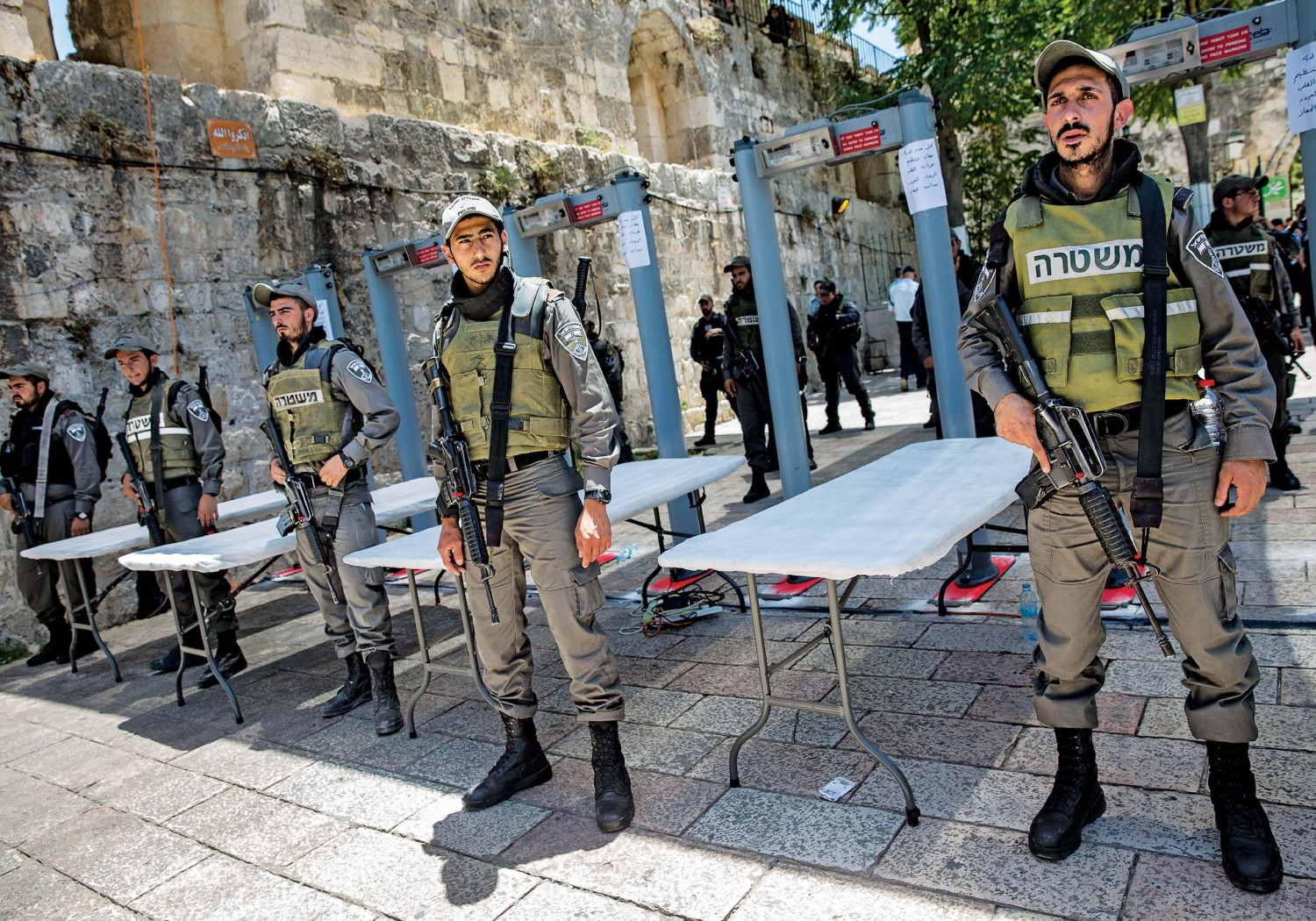
THE TIRE NEXT TIME: A Palestinian protester clashes with Israeli soldiers in a village near the West Bank city of Nablus. Though Israel’s status as a Jewish and democratic state in the very long term is still imperiled, five decades after the occupation began, the Palestinian national movement has been largely defeated.
JAAFAR ASHTIYEH/AFP/GETTY
IT WAS THE END OF RAMADAN, a few days before Eid al-Fitr, a time of feasts and family. But the housewives shopping in a Gaza City market were buying just a few handfuls of vegetables and small pieces of meat. “Nobody can use their refrigerators,” one vendor explains; the power is out for much of the day, and food spoils quickly here. It was the start of a typically harsh summer, with daytime temperatures in the 90s, and in one office after the next, politicians and professors apologized to visitors for the heat—their air conditioners were useless.
After three wars and a decade-long military blockade, Gaza’s nearly 2 million people are familiar with hardship. This summer’s power crisis is merely the latest in a long list of shortages of everything from drinking water and cooking gas to cement and cars. But this time, one thing is different: The problem has been created by other Palestinians.